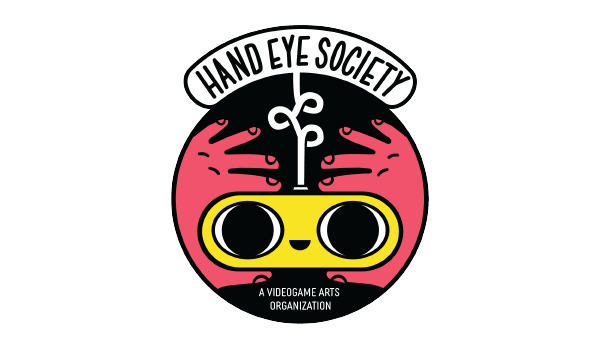
[Spotlight Game] Homo Synthetica
First things first: apologies. This month’s spotlight game is just as late as Spring. May our many hydrae heads be struck from our infinite writhing necks. Our second last spotlight game is Homo Synthetica by altopunk, a.k.a. the Frank Ocean of the Canadian game scene, quietly dropping masterpieces then slipping off into psychic icestorm dimensions. A prototype of Homo Synthetica is available on itch.io for a pay-what-can-you-can price and has also been sent to all Hand Eye members for free. Not a Hand Eye member? To join, head here!
Homo Synthetica and the Art of Language

Can I offer you a cybercorrupt visual novel about broke college life for radical androids, intersectional oppression and Black Girl Cyberpunk Excellence in this trying time?
In general, I want you to play all the games we feature for our Spotlight series (now entering its twilight weeks, godspeed you palliative column), but I have a crystalized all-caps NEED for you to play Altopunk’s Homo Synthetica.
The entire game is a line-command interface immersing you in Oya, an android whose malcontent manifests in deliberate corruption of her own data – a Digitally Transmitted Infection running rampant in her pre-programmed mind, altering and exposing her truths. Pluralities of sincerely experienced moments mean Oya has multitudes within her, Shrek-tier onion layers to each interaction that weigh heavier when they’re mangled.
That all comes later. What comes first is 0Y4-46710, the biped. This is the serial number and derogatory terminology that Professor Abel calls Oya, and how players are introduced to her. It’s a perfect primer to navigating Oya’s reality, where your very being is considered unhuman, so dehumanizing comes easy.

You have access to her root menu, which lets you browse other directories. You defrag temporal sequences and debug memories to find deeper levels to interactions you’ve previously witnessed. On first encounter, a conversation may seem like a one-way exchange, but recovering the file reveals what Oya had actually replied or how she interpreted the speaker’s words.
Take Lavender, a human co-worker of Oya’s. We read Lavender’s dialogue in the first memory module, and assume Oya, an unfeeling automaton, has barely talked to her. Delving further into the second module reveal that’s far from the case and far from who Oya is. Playing a later version of the memories, we watch Oya catch feelings for Lavender. Another viewing of the same set of memories bellies Oya’s frustration with Lavender’s human allowances.

Players rely on the words relayed to Oya, our understanding shifting with new responses and thoughts added. Surface truths, which show what happened; deeper truths which contextualize Oya’s choices and unsaid power dynamics. It’s these revelations that directly name the language of others for what it is – personally invalidating and politically dehumanizing. Language in Homo Synthetica gives form to systemic cruelty.

Like Canadian racism, there are folks in Oya’s life who hurt her in indirect, microaggressive ways. They are complacent with “meeting people where they are”. They call her things without her consent that they assume they are allowed to say. They assume she has never been in danger. They police her hair (because #ruinablackgirlsday2134).They take her silence as being agreeable or conflict avoidance. But avoiding conflict isn’t weakness. It’s what you do to survive, when dissidence means violence.
As the game progresses, corrupted text in Homo Synthetica becomes poetry in errors. It’s incoherent, interrupts the plot, and is impossible to verbalize, making it the best vehicle for expressing Oya’s rage inside the machine.

Error messages and glitches are inherently reality-bending. They are characters who clips through walls and remind you that someone coded this game. They are the cracks on normalized societal conventions that remind you that someone institutionalized this pain. The noise of senseless technical wrongness is the meaning. The medium is the message, and Oya sounds realest when she’s distorted.
If Canadian alternative games were a class and I were an embattled TA besieged with “my laptop/android girlfriend hybrid had a virus” emails, this game would be essential reading on the course syllabus. Games like Homo Synthetica are why I care about indie game culture. Games like these build mirrors. Informed by systems, they decipher AI truths for humans. For everyone else, they are reminders that your corrupted operating systems are flawless.


